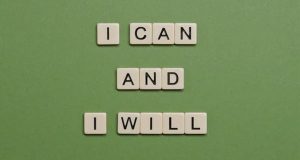Grains Cause Deficiencies, But All Is Not Lost, Says Cardiologist
Wheat and other grains are such staples of human diets that people refer to sharing a meal as “breaking bread.”
But it’s more likely that the bread is breaking us, even the whole-grain versions, says cardiologist Dr. William Davis.
Among other problems, the consumption of wheat and other grains can lead to significant nutrient and vitamin deficiencies, putting people’s health at risk, says Davis, author of “Wheat Belly Total Health,” (www.wheatbellyblog.com), the latest in his bestselling “Wheat Belly” series.
“People are always told to replace their white-flour products with whole-grain products as a path to better nutrition,” he says. “But that’s just replacing something bad for you with something less bad.”
Here are three examples of nutritional deficiencies that Davis says a grain-rich diet can cause, along with ways to restore the nutrients to your body.
• Iron in your fire. Feeling lightheaded and low on energy? Finding it hard to maintain your concentration? That could mean an iron deficiency. Blood loss is a more common cause of iron deficiency, but grain consumption isn’t far behind, Davis says. Remove grains from the diet and normal iron absorption will return. That may be all that’s required, he says, though in some cases iron supplements are needed to speed up the process.
Eggs and meats are among the best sources of iron. Other iron-rich foods include spinach, chard, kale, molasses, pumpkin seeds, lima beans and kidney beans.
• In the pink with zinc. Grain-consuming people might find themselves suffering from skin rashes, distortions of taste, unexplained diarrhea, wounds that heal slowly and other chronic health problems. If you have a zinc deficiency, don’t feel singled out. So does about 25 percent world’s population. Davis says that’s because grains have a compound called phytates that block zinc absorption dramatically. The solution? Don’t eat grains, but eat zinc-rich foods such as meat, poultry and shellfish. If you can’t fill up on zinc-rich meats, nutritional supplements such as zinc gluconate, zinc sulfate and zinc acetate can help, he says.
• The magnificence of magnesium. Magnesium deficiency has real health implications, Davis says, and a diet rich in “healthy whole grains” virtually assures a deficiency. A lack of magnesium contributes to osteoporosis, and also is associated with hypertension, higher blood sugars, muscle cramps, low birth weight in infants, migraine headaches and heart rhythm disorders. Increasing your consumption of magnesium-rich foods can help. They include almonds and other nuts, peanut butter, spinach, pumpkin seeds, sesame seeds and sunflower seeds.
“One thing you do not have to do is correct deficiencies that develop as a consequence of eliminating grains,” Davis says. “There is no such deficiency. In fact, the opposite is often true. Nutrient status improves without the nutrient-blocking effects of grains.”
 Pride News Canada's Leader In African Canadian & Caribbean News, Views & Lifestyle
Pride News Canada's Leader In African Canadian & Caribbean News, Views & Lifestyle




